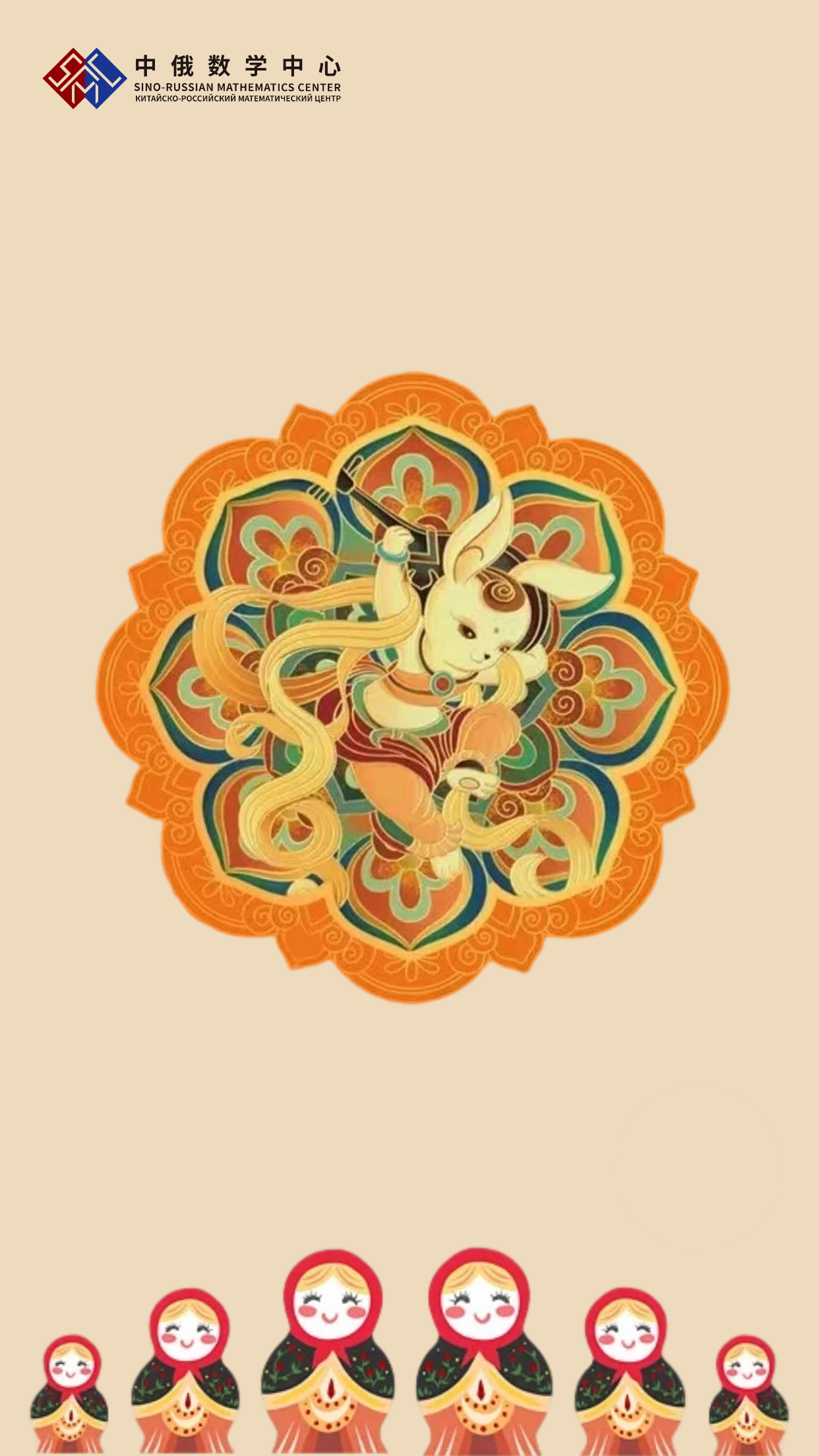
The weather and personnel are urging each other day by day, and the winter solstice brings sunshine and spring again
2022 comes to an end in a flash
At the node of the tail of the year
All the moments of effort are worthy of our careful combing and slow aftertaste
01 January
At the beginning of the new year, Beijing-Moscow Mathematics Colloquium, Beijing-Saint Petersburg Mathematics Colloquium and Beijing-Novosibirsk Seminar on Geometry and Mathematical Physics sequentially started! In this year's 45 forums, we invited 78 famous mathematicians, including 4 academicians and 8 communication academicians. Whenever the report starts, Beijing at 8 p.m., Moscow at 11 a.m., and Saint Petersburg and Novosibirsk at 4 p.m. are parallel in the same mathematical space dimension.

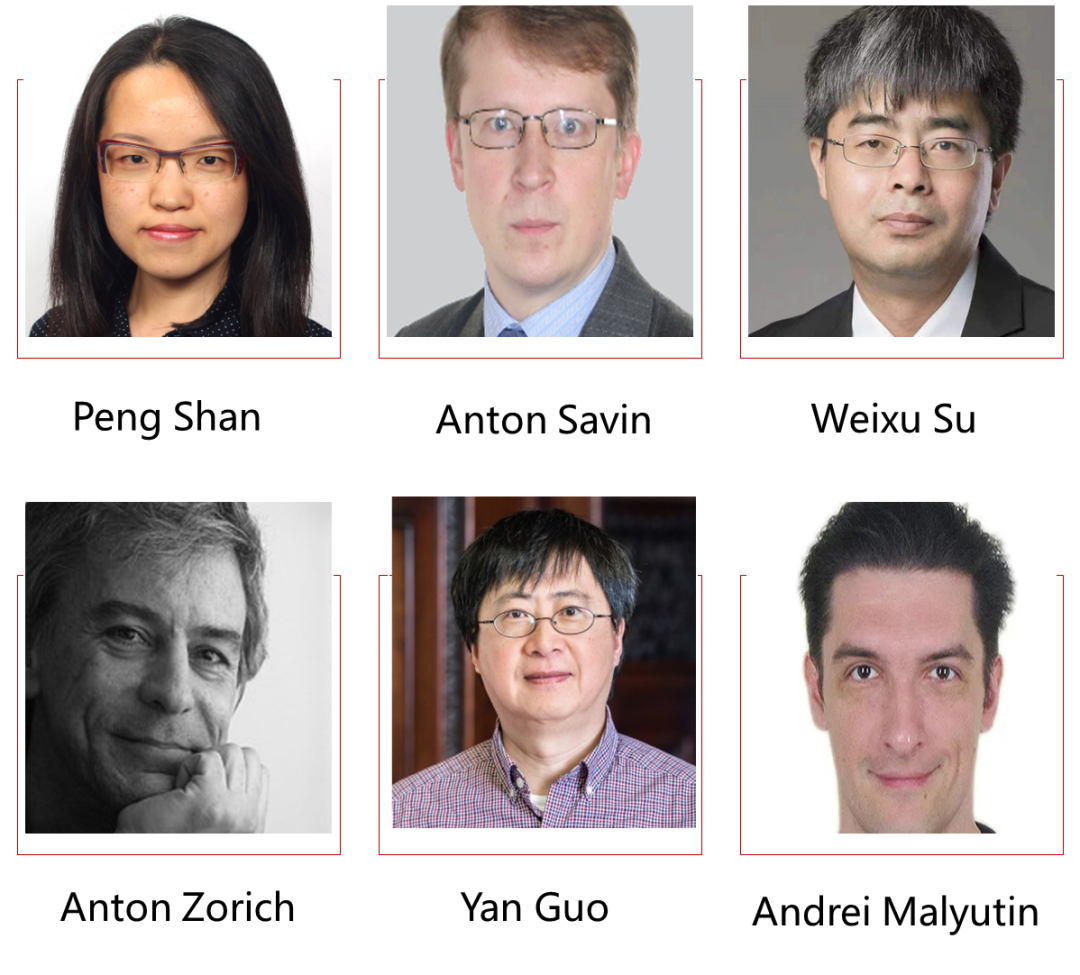
Some academicians and professors participated in the series of Sino-Russian mathematics colloquiums in 2022
02 February
On February 10th, Wang Jieran and Guo Junhu, two PhD students recommended by the center, arrived in Russia smoothly. They told us silently with their backs that we didn't have to chase them. The two young adults were sent by the Russia-Ukraine-Belarus International Cooperation Training Program, and they followed Russian tutors gradually deducing the appearance of knowledge. Guo Junhu cooperated with Alexander Zheglov, his Russian tutor, to complete the paper "On some questions around the Berest's project".

Guo Junhu cooperated with Alexander Zheglov, his Russian tutor, to complete the paper
The spread of knowledge follows the rhythm of nature and merges into the growth of all living things. On February 24th, the notice of Spring online courses by Russian experts was officially released. Related courses include: Arithmetic of Elliptic Curves, Topology of Integrable Hamiltonian Systems, Diophantine Approximation, Triangulated and Derived Categories in Algebra and Geometry. The Autumn courses started on September 5th, including Representation Theory, Geometry, Quantization and Semi Classical Asymptotics, Fundamentals of Calculus of Variables and Optimal Control, Geometry and Topology of nilmanifolds. Internationalized courses based on the frontier of disciplines are fertile soil for nourishing academic depth and thickness.

Scholars who taught the Spring courses and Autumn courses
03 March
In March, Chinese scholars echoed with their peers from afar, and four Chinese experts offered two online open courses, namely, "Homological Method in Quantum Field Theory" and "Donaldson Invariants and Hitchin Moduli Space". "Homological Method in Quantum Field Theory" was in the charge of Professor Li Si from Yau Mathematical Sciences Center of Tsinghua University. "Donaldson Invariants and Hitchin Moduli Space " was divided into three parts, which were respectively taught by Professor Chen Bohui, Distinguished Researcher Li Qiongling and Academician Ruan Yongbin. After many years, it may become a model of academic thought exchange and collision.
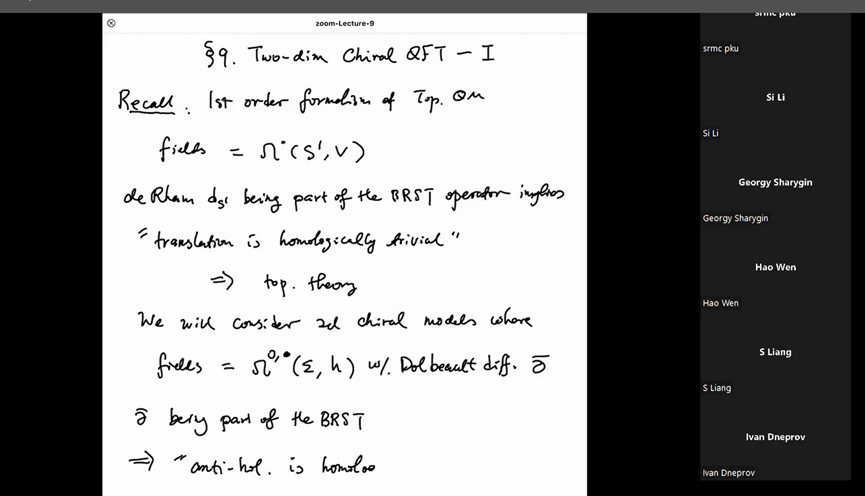
Screenshot of open courses
The achievements continued to emerge this year. On March 28th, Yuan Xinyi, the academic leader of the cooperation team of Sino-Russian Mathematics Center, and Xie Junyi jointly wrote the paper "Geometric Bogomolov consciousness in ambient characteristics", which was received by the top mathematics magazine Inventiones Mathematicae. Professor Zhou Xiaohua, the head of the Medical Mathematics Research Center of the center, and Professor Fu Song, the head of the cooperation team of the center, published important achievements in the Journal of American Statistical Association and the Journal of Fluid Mechanics (JFM) respectively; Professor Gong Kan, the key member of the Medical Mathematics Research Center of the center, and his team published important achievements in the famous International Journal of Biological Sciences. Due to space limitations, many achievements cannot be presented completely.
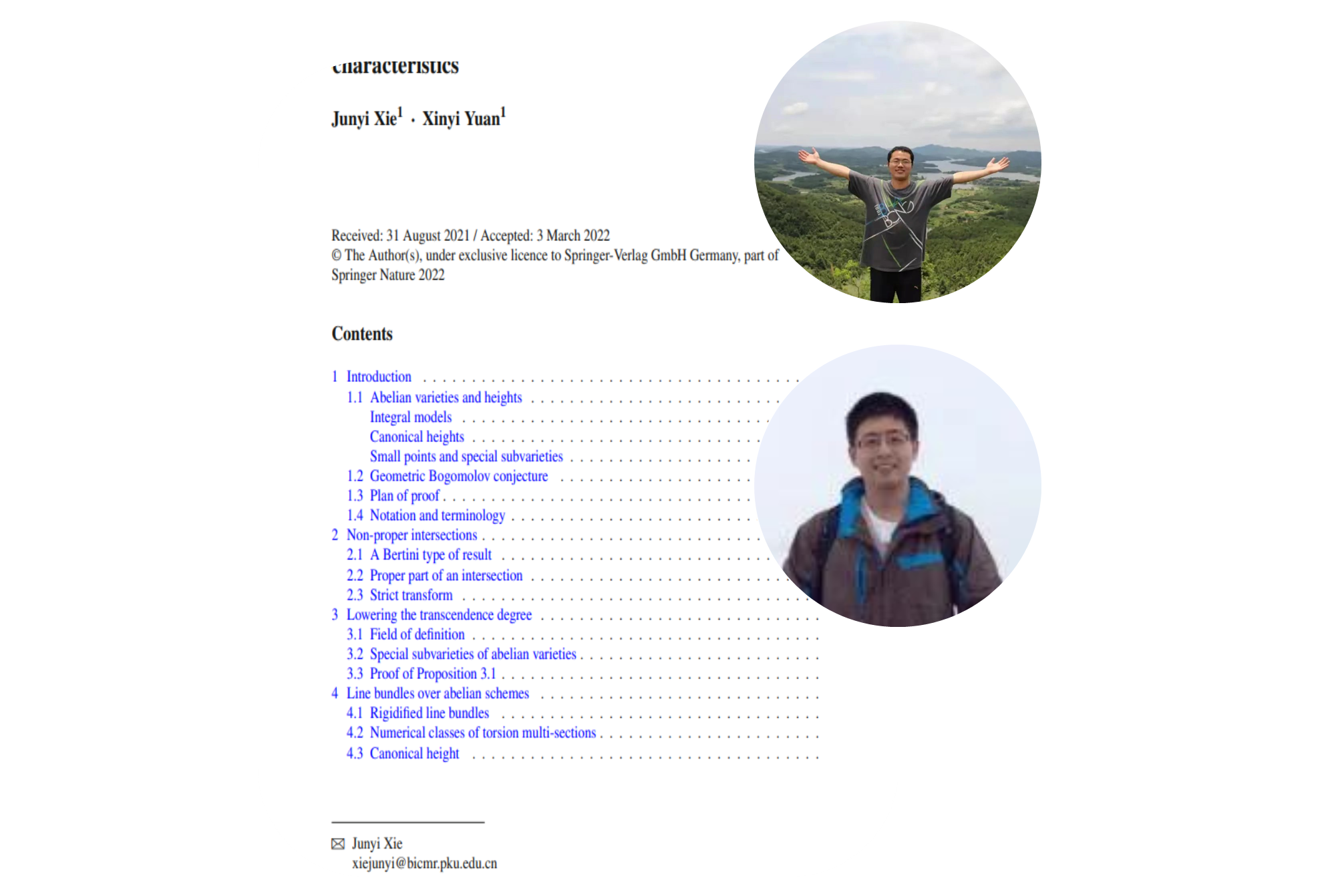
Catalogue of the paper jointly published by Professor Yuan Xinyi and Professor Xie Junyi
05 May
The lineup of the center's cooperation base is growing continuously. On May 31st, the kick-off meeting of Sino-Russian Mathematics Center-Chengdu Base was held in Sichuan University. Director Zhang Jiping personally unveiled the new base. Relying on the advantages of mathematics of Sichuan University, the base will fulfill its mission in talent training, scientific research and international cooperation and exchange. At present, the center has set up 12 bases nationwide, including 8 Class A bases and 4 Class B bases.

Establishment site of Chengdu base
06 June
June 29th is the second birthday of the center. Since its inception, the center has been inseparable from the sustained efforts of those behind the scenes. All of us supported this world together, and put great enthusiasm and efforts in the operation of the center's website and WeChat official account, project management, international affairs liaison, as well as cooperation base and team building. On the birthday, we summarized the past and hoped that everyone would gain a full sense of identity and achievement on the way to grow together with the center.
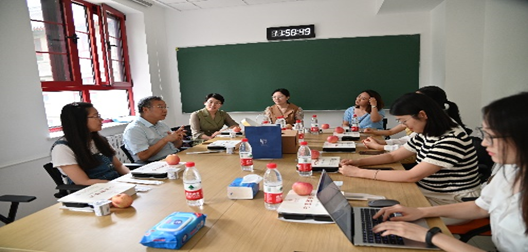
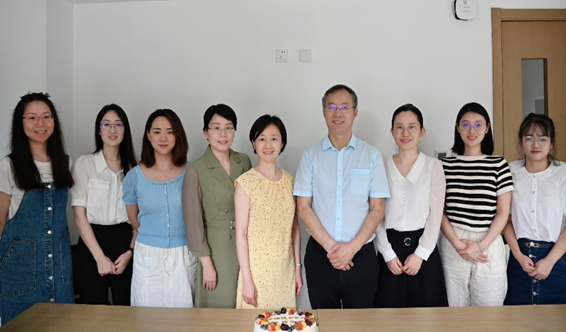
Two-year anniversary working meeting of the center
08 August
Tacit agreement arises because of mutual understanding. In 2022, Duan Huiling, the director of Nanchang Innovation Research Institute, the cooperation base of the center, led a team to visit the Ministry of Aerospace, and the base invited Professor Shen Jie of Purdue University and Professor Fu Song of Tsinghua University to give academic reports; The Sino-Russian Mathematics Center-Jilin University Colloquium held 45 forums in total, including 7 short-term courses and an international academic conference, which invited nearly 50 famous mathematicians from China and Russia to give reports; On August 16th, "Seminar on Differential Equation Dynamics" was held online by Chengdu base of the center. The seminar fully discussed the theory and application of differential equation dynamics, which broadened the professional vision of teachers and students; On September 5th, the center’s cooperation base Shandong University held the "2022 International Symposium on Geometric Analysis" in Qingdao; On September 17th, Three Gorges Mathematical Research Center, the cooperation base of the center, was invited to Wuhan to participate in the cooperation exchange meeting. Although the bases are scattered in different places, the lines of the landscape are the same.
On August 30th, the 26th regular meeting of the Scientific and Technological Cooperation Subcommittee of the China-Russia Prime Ministers' Regular Meeting Committee was held via Beijing-Moscow video link. Both sides exchanged views and reached broad consensus on deepening cooperation under the framework of large scientific devices, strengthening cooperation in joint R&D projects, holding Sino-Russian science and technology exhibitions, and expanding cooperation in mathematics, climate and environment, agriculture and other fields. Professor Chen Dayue, deputy director of Sino-Russian Mathematics Center, delivered a speech at the meeting as the representative, expressing the ardent expectation of the development prospect of scientific research cooperation between the two countries.
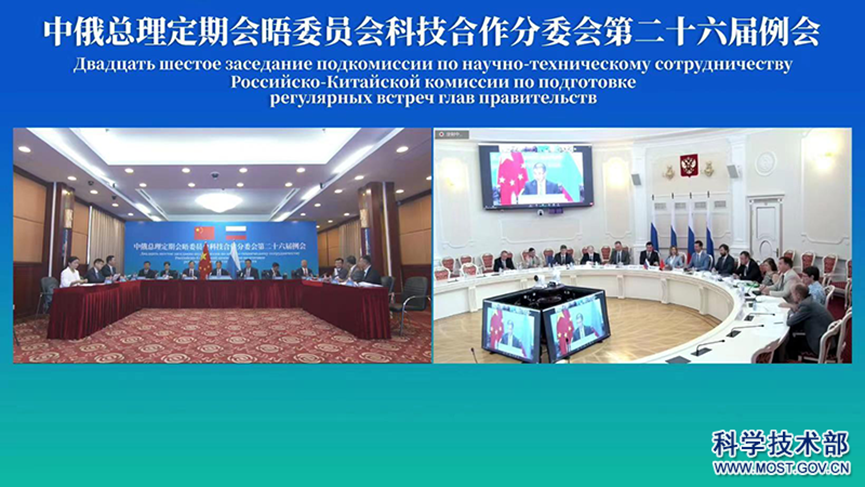
Meeting site
09 September
In September, Professor Alexander Zheglov, Professor Alexey Tuzhilin and Associate Professor George Sharygin from the Department of Mechanics and Mathematics of Moscow State University came to the center from far away. In the bustle of the epidemic, such a gathering is particularly precious. Two exchange students from Russian HSE University arrived as scheduled, and the visit of Anna, the female student, brought a lively atmosphere to the center.

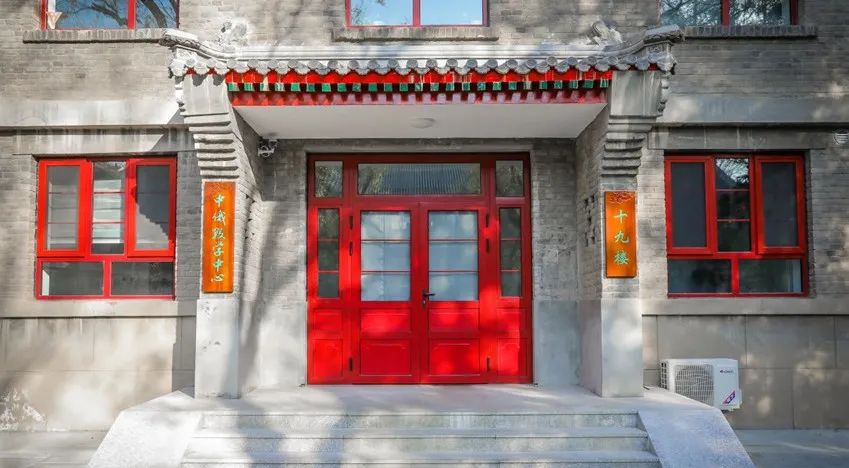
Russian scholars are working at Sino-Russian Mathematics Center
Good news was reported frequently this year. On September 15th, the list of winners of the fourth XPLORER Prize was officially announced, and 50 young scientists were awarded this honor. Professor Yuan Xinyi, the team leader of the center’s cooperation team, was listed in the field of mathematical physics. Professor Yuan Xinyi's main work directions are: 1. Arakelov geometry, Diophantine geometry and algebraic dynamic systems; 2. Automorphic form, Shimura cluster and L-function. He has breakthrough work and is regarded as the international leading mathematician in both directions. He comes back with great honor and is still young.

Professor Yuan Xinyi was teaching at the University of California, Berkeley in 2018
On September 26th, the Frontier Mathematics Sub Forum of 2022 International Industry-University-Research-Application Cooperation Conference, which was organized by Sino-Russian Mathematics Center, Tianyuan Mathematical Center in Northeast China, and the School of Mathematics of Jilin University, was successfully held online. More than 100 experts and scholars and representatives of teachers and students in relevant fields from universities and research institutions in Germany, Russia, Canada, Ukraine and other countries and regions participated in this forum. The atmosphere of the forum was active and the atmosphere of academic exchange was strong.
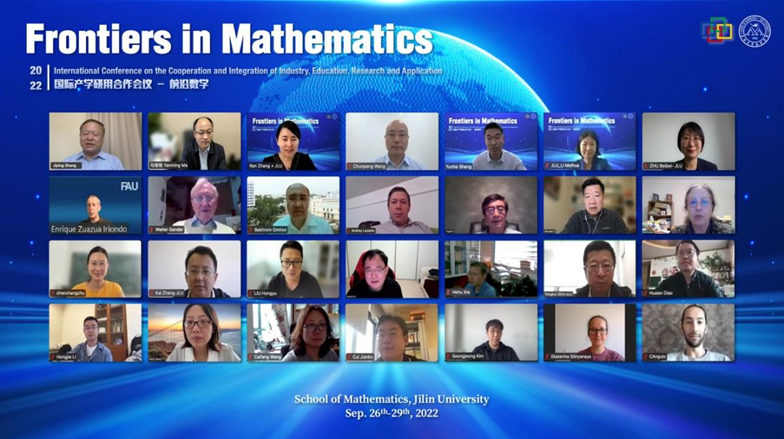
Meeting site of the Frontier Mathematics Sub Forum of 2022 International Industry-University-Research-Application Cooperation Conference
10 October
On October 4th, Sino-Russian Mathematics Center Construction Promotion Conference was successfully held. More than 50 people attended the meeting, including Academician Zhang Jiping, director of the center, Academician Ye Xiangdong, Academician Zheng Xiaojing, Professor Chen Dayue and Professor Fan Huijun, deputy director of the center, Russian representatives, and directors of the center's cooperation bases. The two sides have conducted in-depth discussions, and beyond the existing areas of Sino-Russian mathematical cooperation, will actively expand the scale of cooperation between the two sides, innovate cooperation models, explore new cooperation mechanisms, and ultimately comprehensively enhance the level of cooperation between China and Russia in mathematics and mechanics and other fields. The participants gathered online and offline, feeling the warmth of an "organization".

Meeting site of Sino-Russian Mathematics Center Construction Promotion Conference
11 November
On November 10, Sino-Russian Mathematics Center Seminar on Mechanics and Mathematics Frontier was successfully held. The conference aims to promote the academic exchange of mathematics and mechanics between China and Russia, and promote the industrial development with academic knowledge. It is expected that the center will play the role of a window and a coordinating agency for cooperation and exchange, to create more cooperation opportunities for scientists from both countries.
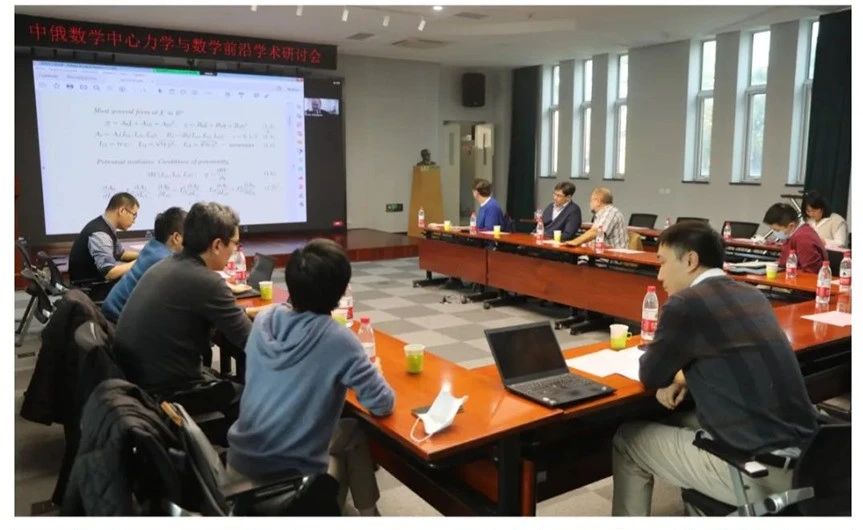
Meeting site of Sino-Russian Mathematics Center Seminar on Mechanics and Mathematics Frontier
On November 12nd, Sino-Russian Mathematics Center Expert Consultation Meeting was successfully held online. Professor Fan Huijun, as the director of the project "Construction and Research Cooperation of the Sino-Russian Joint Laboratory of Mathematics and its Applications under the Belt and Road Initiative", introduced the development of the center's joint laboratory. The participating experts made pertinent suggestions for promoting the construction and research cooperation of the joint laboratory. Academician Zhang Pingwen, vice president of the university, pointed out in his concluding speech that Sino-Russian Mathematics Center is the "Premier Project" that the country pays close attention to. Under the current complex and changing international background, he believes that the center will explore a new path of international exchange and talent training, serving the national strategic needs.
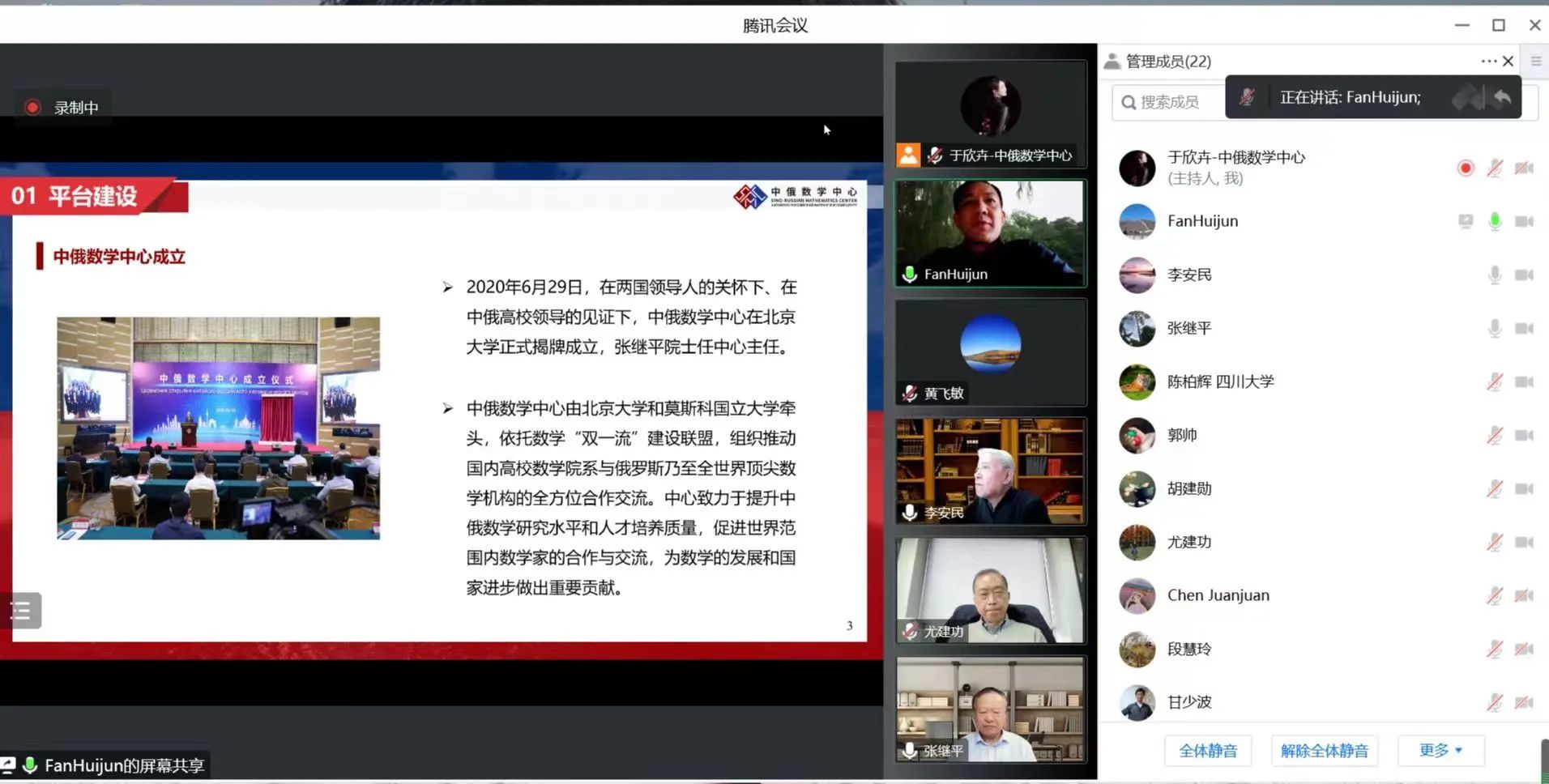
Sino-Russian Mathematics Center Expert Consultation Meeting
On November 23rd, our old friend, Armen Sergeev, a cooperative scholar of the center, won the 2021 Zhongguancun Prize for International Cooperation of Beijing Science and Technology Award. The Zhongguancun Prize for International Cooperation aims to reward foreigners who have carried out international scientific and technological exchanges and cooperation with individuals and organizations in Beijing and improved the internationalization level and global influence of scientific and technological innovation in Beijing. For a long time, Professor Armen Sergeev has insisted on scientific research cooperation with Peking University in mathematics. With his introduction and help, Peking University has successfully signed a package of important agreements with relevant Russian universities. The agreements have made important contributions to the cooperation between China and Russia in science, technology and culture, and are conducive to the smooth implementation of the national Belt and Road strategy. Reputation comes naturally with achievements, and ambition never reduces with age.
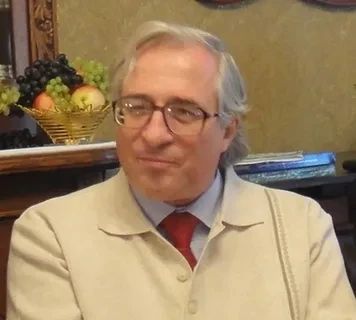
Professor Armen Sergeev
12 December
As the years go by, waves rise and fall, but riverbed will always remember. Between the opening and closing of the curtain, the bright present will extend to the new days in 2023, and it is believed that they will also shine.
Happy New Year!
![]()